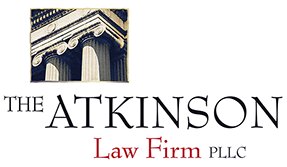Best Brain Injury Lawyers in North Carolina
Share your needs with us, get contacted by law firms.
Free. Takes 2 min.
Or refine your search by selecting a city:
List of the best lawyers in North Carolina, United States
About Brain Injury Law in North Carolina, United States
Brain injuries can result from various incidents, such as motor vehicle accidents, falls, sports injuries, or assaults. In North Carolina, individuals who suffer a brain injury due to another party's negligence or wrongdoing might be eligible for compensation through a personal injury claim. The complexities of diagnosing, treating, and living with a brain injury make these cases unique. Victims often face significant medical expenses, ongoing rehabilitation costs, and life-altering changes. North Carolina law provides a legal pathway for injured individuals and their families to seek justice and recover damages.
Why You May Need a Lawyer
Many people who sustain brain injuries need legal advice and representation because of the complexities involved. Here are common situations where legal help is essential:
- If the injury resulted from a car, truck, or motorcycle accident where another driver was at fault
- If the injury occurred due to a slip-and-fall or unsafe property conditions
- If the brain injury happened at work and workers' compensation claims are complicated or denied
- If insurance companies dispute or undervalue the claim
- If there are questions about long-term care needs, lost income, or future medical expenses
- If there is a dispute regarding liability or fault among multiple parties
- If negotiating with large organizations, such as hospitals or corporations, who have legal teams
A lawyer experienced in brain injury law can help gather evidence, assess damages, handle complex paperwork, negotiate settlements, and represent you in court if necessary. Legal guidance ensures your rights are protected, and you pursue the maximum compensation available for your situation.
Local Laws Overview
Understanding state-specific laws is crucial in pursuing a brain injury claim in North Carolina. Some key aspects include:
- Statute of Limitations: In North Carolina, you generally have three years from the date of the injury to file a personal injury lawsuit. Exceptions may apply for minors or unique circumstances.
- Contributory Negligence Rule: North Carolina applies a strict contributory negligence standard. If the injured person is found even one percent at fault for the accident, they may be barred from recovering any damages from other parties.
- Comparative Fault in Certain Cases: While contributory negligence is the norm, some cases may involve exceptions. Legal counsel is necessary to navigate these nuances.
- Damages Available: Victims may be able to recover compensation for medical bills, lost wages, pain and suffering, loss of consortium, and future care needs. In rare situations, punitive damages may be available if the defendant’s actions were especially reckless.
- Insurance Requirements: North Carolina motorists must carry minimum liability insurance. Victims of car accidents involving uninsured or underinsured drivers may have claims under their own policies.
- Workers’ Compensation: Brain injuries sustained at work may be covered by workers’ compensation, but disputes over coverage and extent of the injury are common.
Frequently Asked Questions
What qualifies as a brain injury for legal purposes?
A brain injury refers to any trauma or damage to the brain caused by an external force, such as a blow to the head, whiplash, or sudden acceleration-deceleration. This includes concussions, traumatic brain injuries (TBIs), and more severe forms of brain damage.
How do I know if I have a valid brain injury lawsuit in North Carolina?
You may have a valid claim if your brain injury was caused by someone else’s negligence, such as a careless driver, property owner, or employer. Speaking with a qualified attorney is important to assess the facts and determine the viability of your claim.
What compensation can I recover for a brain injury?
Compensation can include medical bills, lost wages, pain and suffering, loss of quality of life, future rehabilitation costs, and in some cases, punitive damages. The specific amount depends on the unique circumstances of your case.
How long do I have to file a brain injury claim in North Carolina?
Most personal injury claims must be filed within three years of the date of injury. Filing late may result in loss of the right to seek compensation.
What if I was partially at fault for the accident?
North Carolina follows a strict contributory negligence rule. If you are found to be even slightly at fault, you may not be eligible for any compensation. Legal help is especially crucial in these cases.
Will my case go to court?
Many brain injury claims settle out of court through negotiations with insurance companies or responsible parties. However, if a fair settlement cannot be reached, your case may go to trial. Your attorney will advise you on the best strategy.
Can I file a claim on behalf of a loved one with a brain injury?
Yes, family members may be able to file a claim as guardians or legal representatives for brain injury victims who are unable to act on their own behalf.
How are brain injuries diagnosed for legal cases?
Diagnosis is typically based on medical records, neurological assessments, imaging tests like CT scans or MRIs, and the testimony of medical experts.
Do I need a specialist brain injury lawyer in North Carolina?
Brain injury cases are complex and involve unique medical and legal challenges. Working with a lawyer experienced in brain injury law in North Carolina helps ensure your rights are fully protected.
How much does it cost to hire a brain injury attorney?
Most attorneys handling brain injury claims work on a contingency fee basis, meaning you do not pay upfront fees. They receive a percentage of the settlement or court award if your case is successful.
Additional Resources
If you need additional help or information related to brain injury in North Carolina, consider the following resources:
- North Carolina Department of Health and Human Services, Traumatic Brain Injury Program
- Brain Injury Association of North Carolina
- North Carolina State Bar, Lawyer Referral Service
- Legal Aid of North Carolina (for qualifying individuals)
- Local hospitals and rehabilitation centers with traumatic brain injury resources
- North Carolina Victims Assistance Network (for victims of crimes leading to brain injury)
Next Steps
If you or a loved one has suffered a brain injury in North Carolina, act promptly to protect your legal rights. Here are the general steps to follow:
- Seek immediate medical attention and follow all recommendations for care and follow-up.
- Document the incident, injuries, and all related expenses.
- Avoid discussing the details of the incident or admitting fault.
- Consult with a lawyer experienced in brain injury law as soon as possible.
- Gather relevant records, such as medical reports, police reports, witness statements, and insurance documentation.
- Follow your attorney’s guidance throughout the legal process to maximize your recovery.
Seeking legal assistance early can help preserve evidence and ensure your case is handled effectively from the start. Brain injury cases are challenging, but with the right support, you can focus on recovery while your legal representative handles your claim.
Lawzana helps you find the best lawyers and law firms in North Carolina through a curated and pre-screened list of qualified legal professionals. Our platform offers rankings and detailed profiles of attorneys and law firms, allowing you to compare based on practice areas, including Brain Injury, experience, and client feedback.
Each profile includes a description of the firm's areas of practice, client reviews, team members and partners, year of establishment, spoken languages, office locations, contact information, social media presence, and any published articles or resources. Most firms on our platform speak English and are experienced in both local and international legal matters.
Get a quote from top-rated law firms in North Carolina, United States — quickly, securely, and without unnecessary hassle.
Disclaimer:
The information provided on this page is for general informational purposes only and does not constitute legal advice. While we strive to ensure the accuracy and relevance of the content, legal information may change over time, and interpretations of the law can vary. You should always consult with a qualified legal professional for advice specific to your situation.
We disclaim all liability for actions taken or not taken based on the content of this page. If you believe any information is incorrect or outdated, please contact us, and we will review and update it where appropriate.
Browse brain injury law firms by city in North Carolina
Refine your search by selecting a city.

















